High School
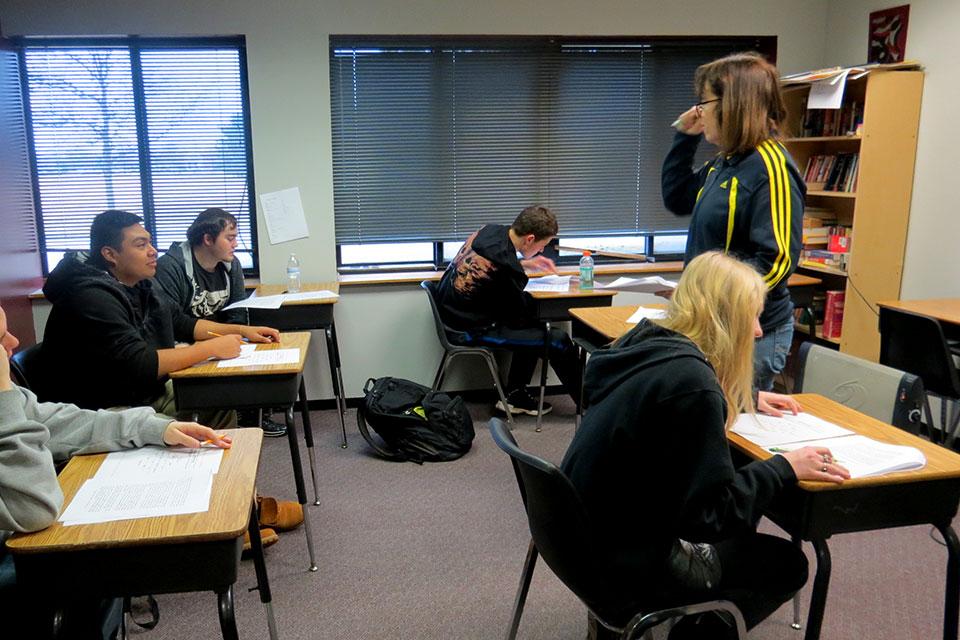
HIGH SCHOOL PROGRAM
The Learning House provides a unique blend of academic education, counseling, work experience, and outdoor education designed to serve children ages 12-21.
OUR GOALS
Within the field of education, there are many approaches and methods available to provide opportunities to students who have, until now, experienced limited success in traditional special education programs. The Learning House provides a unique blend of academic education, counseling, work experience, and outdoor education designed to serve children ages 12-21 who have been determined eligible to receive special education under section 14.702 of the Illinois School Code in the categories of ED/SLD/OHI/Autsim. We believe the synergy inherent in the program allows students to apply the knowledge gained within each component to help them be successful across each of the areas listed above.
 PHILOSOHPY
PHILOSOHPY
Students choosing to attend The Learning House enter a community that is supportive, nurturing and receptive to their needs. Issues of mutual trust, respect and encouragement are primary to the relationships fostered between students and staff.
This environment asks that every member be responsible and accountable for their contribution to the community. As students work within The Learning House community, they are faced with a multitude of choices. Some of these choices are made on their own, some with the help of peers, and others with the guidance of adults. Throughout their experience at The Learning House, students are asked by the community to accept responsibility for their choices.
Because making choices is a life-long process and the results of one choice may have an impact on future choices, it is the goal of The Learning House to provide a consistent, yet supportive, approach to helping our students make better choices.
When the results of a student’s decision occur naturally, without the influence of any other person, especially of the adults around him, the student is much more likely to accept the consequence of his actions and learn from the experience. When this is not possible due to issues such as safety, efficiency, or clarity, it is still important that the results of a student’s decision have some logical connection to the choice that was made.
When students learn to make better decisions, not because they were forced to or because of an artificial reward, but because they choose to, they are in essence preparing themselves for the demands that will be placed on them in less restrictive educational settings and in their life after graduation.
Putting The Philosophy Into Practice
Paramount to the idea of helping students make positive choices for themselves is the fact that their choices have an influence on their own life. It is for this reason that students are involved in the decision-making processes at The Learning House. This involvement takes two forms.
First, decisions regarding day-to-day rules, policies and events are made by the three groups of people who are at The Learning House on a day-to-day basis. During morning meetings and community planning groups, these decisions are made in a democratic fashion by the students, the staff and the administration of The Learning House. It is the students who make up the majority in these decisions.
In addition, decisions regarding overall operations and philosophies of The Learning House are approved and discussed by The Learning House Advisory Board. This board is comprised of equal representation from the following groups of people: staff, students, parents, school district representatives, foundation board representatives and the Director who reports to this board. It is in this way that students are given a variety of choices and responsibilities within their school community.
It is not only important that students have an influence within their environment, but also that they are motivated within that environment. The Learning House provides a wide variety of curricula, including all of the required courses for graduation as well as additional electives such as autos, woods, and foods. Every course is taught stressing improvement in the basic skills of reading and writing, while providing the motivational attributes of a hands-on experience.
We have updated our bullying policy which can be found here TLH Bullying Policy .pdf
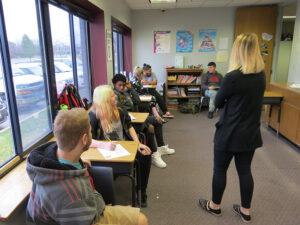 Academics
Academics
The use of Mastery Learning applies The Learning House philosophy into the classroom. Within the Mastery Learning approach, students must complete assignments on a mastery level (80% or better) before moving on to their next assignment. This approach is continued on a semester basis so students not completing one semesters work remain in the class until the subject area has been mastered. Once a student completes the coursework, he is asked to give input into choosing his next course of study.
Each student at The Learning House has a post high school transition plan which aids students in preparing for life after high school. For example, students are given the opportunity to research colleges and jobs with the help of a staff member. Students are given the materials and support necessary for whatever their individual post high school goals may be.
Counseling
It is already obvious that students at The Learning House are asked to make a wide variety of decisions with differing ranges of importance. In order to facilitate the decision-making process as well as the learning process after those decisions are made, each student is assigned to an individual therapist who meets with that student on a weekly basis.
The students also participate in group counseling designed to help foster a safe environment in which students can discuss issues among their peers. Each group is designed to address a different set of needs. As these needs change, the groups are reevaluated and redesigned to accommodate the community.
The student’s school environment only makes up approximately 40% of their total environment. Because the student’s family is such a key element in the student’s total environment, The Learning House makes every effort to encourage the blending of school and family. Family therapy is scheduled every month in order to address and support the family’s efforts at home as well as to encourage the family’s support of their student’s efforts at school. Additionally, parental involvement in support groups and the Parent-Teacher Organization is requested on a bi-monthly basis. The Clinical Director is available to the student and his/her family 24 hours per day for crisis intervention.
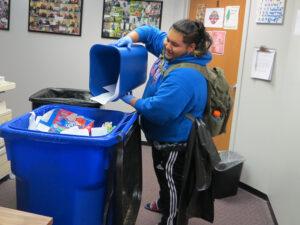 Work Program
Work Program
Entering the job market is the natural result of a student’s completion of his/her academic pursuits. The Learning House provides a series of vocational approaches to prepare its students for this eventuality.
Students entering The Learning House are asked to help in the basic housekeeping duties at school on a day-to-day basis. In response to their help in this area, they receive an “allowance” of six dollars every other week. This allowance is taken from the student treasury.
As students progress, they may apply for a job within the student work program. The work program provides the students with a “mock” work experience through which they can develop transferable job skills while earning a paycheck. Students are exposed to the traditional demands of the workplace, including promptness, efficiency, maintaining relationships with co-workers and supervisors, and the alliance between actual job performance and merit pay raises.
Students also receive academic credit for their participation in the work program. All revenues earned from the completed jobs are deposited into the student treasury. Any profits that are held after the students are paid their “allowance” or their “wages” are available to the student community to be spent in any manner the community sees fit. As students progress through this program, opportunities for employment in their local community and early dismissal from school are available.
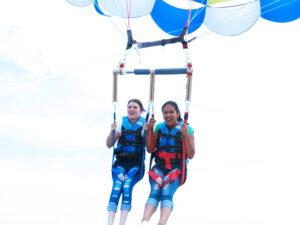 Recreation
Recreation
Just as school work and the preparation for work after school is important, so too is a time for recreation. The Learning House provides three different settings in which appropriate recreational activities are facilitated.
The Learning House also encourages students to plan recreational field trips of their own choosing. After the community has decided upon the desired activity, the staff at The Learning House will be available to provide assistance and supervision in the preparation and the participation of the event.
Additionally, The Learning House participates in the Chicago Area Alternative Educational League. CAAEL encourages students to participate in sports such as basketball, volleyball, softball, and flag football, while stressing the importance of good sportsmanship, teamwork and academic eligibility.
The Learning House also strongly supports the notion of Outdoor Education. During the summer, the staff and students at The Learning House, through monies raised by The Learning House Foundation, participate in a number of outdoor educational experiences designed to foster qualities of teamwork, cooperation, self-esteem, goal setting and trust in a relaxed atmosphere away from school. These activities include, but are not limited to, rock-climbing, water-skiing, ziplining, horseback riding, and an expanding range of similar adventures.
While students have the opportunity to earn credit by participating in these activities, the long term value is usually found in the sense of self-worth and the improved relationships of the group participants. The Learning House believes these skills to be transferable to more academic pursuits during the school year.
Daily Schedule
The school day begins at 8:30 a.m. and ends at 4:30 p.m. Monday through Thursday. On Fridays the school day begins at 8:30 a.m. and ends at 1:30 p.m. Those students who remain caught up in their coursework will be eligible for early dismissal (3:30 p.m.), rather than leaving at the regular dismissal of 4:30 p.m. Those students who have not earned the privilege to leave on the early dismissal program at 3:30 p.m. remain at The Learning House until 4:30 p.m. to receive additional one-on-one assistance for the remaining hour of the day.
Each day begins with a morning meeting in which issues regarding the day’s activities and events are discussed. Classes begin at 8:45 a.m. There are three, forty minute class periods in the morning with a four minute “passing period” between each class. After the first three academic periods, students go to study hall or complete their assigned “chores” for 25 minutes. They then participate in group therapy for 40 minutes, followed by lunch for 40 minutes.
After lunch, there are three more periods of academics. At 3:00 p.m., students needing additional academic help are asked to go to study hall while those students caught up in their studies are free to choose from a variety of activities such as Art Club, Fitness Club, additional work time, or other extra-curricular activities mutually agreed upon by students and staff.
During the summer, our schedule changes. The day still begins at 8:30 a.m. and allows the same schedule until 1:30 p.m. (unless students are eligible for early dismissal, at which time the students are dismissed at noon). This schedule occurs Monday through Friday unless there is an outdoor education trip scheduled, where the students will attend school until 3:30.
———
Bell Schedule
1st Period: 8:45-9:24
2nd Period: 9:27-10:06
3rd Period: 10:09-10:48
Chores/Work Program: 10:51-11:16
Math Enrichment: 11:19-11:44
Group: 11:47-12:22
Lunch: 12:22-12:57
4th Period: 1:00-1:39
5th Period: 1:42-2:21
6th Period: 2:24-3:03
Study Hall: 3:06-3:31
Extended Day Program: 3:31-4:30
———
Students
A typical Learning House student is between the ages of 12 and 21. Most of the students who come to The Learning House possess average to above average intelligence, yet their history in school has been unsuccessful thus far. Issues of truancy, socially inappropriate behavior, poor organizational skills, and lack of work production or even specific learning disabilities are common problems that have been identified in the student’s previous school history.
The most critical attribute of a student attending The Learning House is his/her own desire to attend. The first choice offered to students at The Learning House is whether or not to make the commitment to attend and participate. When a student is allowed the freedom and responsibility of choice, he/she is more apt to follow through with those choices in a manner that meets his/her own needs.
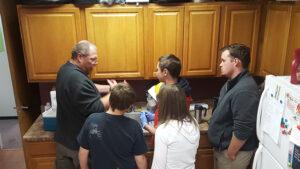 Area Served
Area Served
The Learning House is located in Wheeling, Illinois. Due to our location, the majority of our students come from Northern Cook and Southern Lake Counties. Students’ home schools include, but are not limited to: Warren, Leyden, Lake Zurich, Evanston, Lake Forest, Libertyville, Vernon Hills, Stevenson, Deerfield, Highland Park, New Trier, Grayslake, Wauconda, Elmwood Park, Prospect, Waukegan and Grant. The Learning House believes that students should travel no more than 45 minutes to school.
